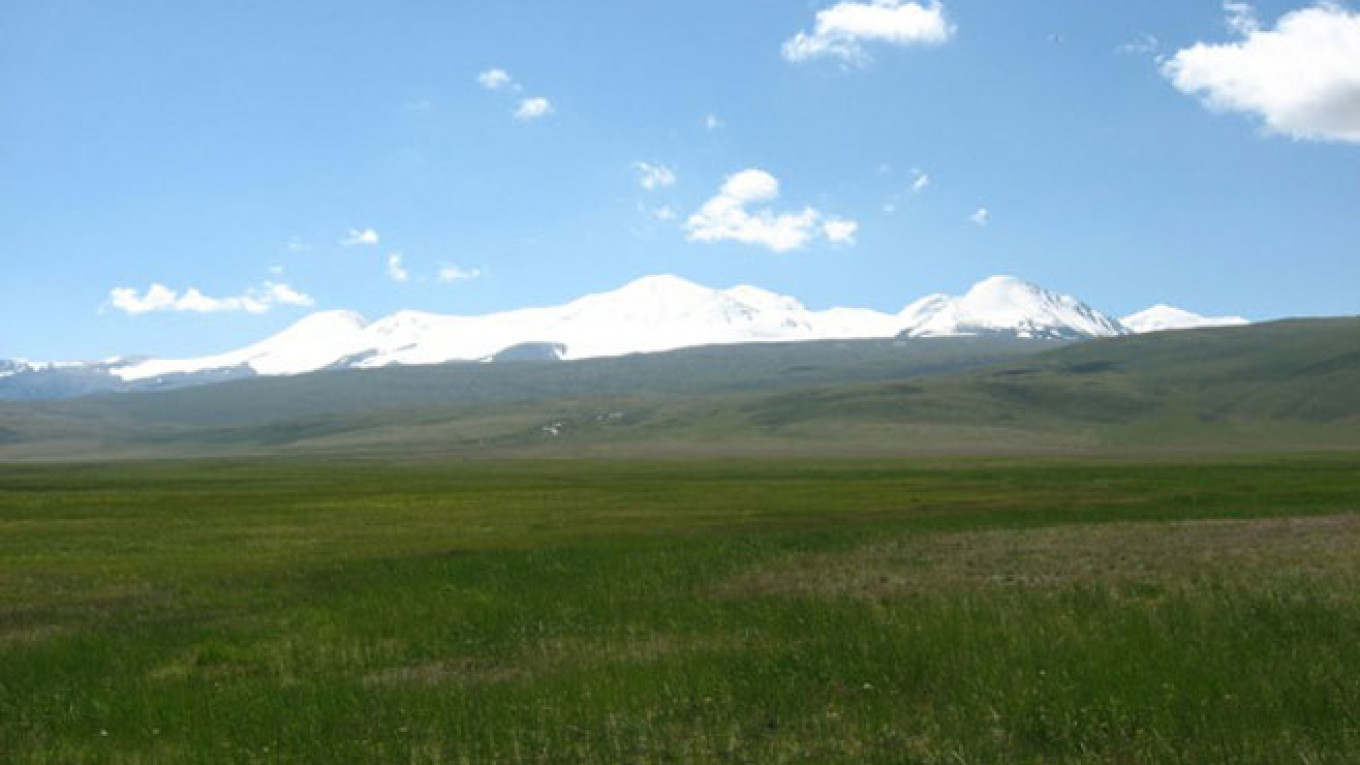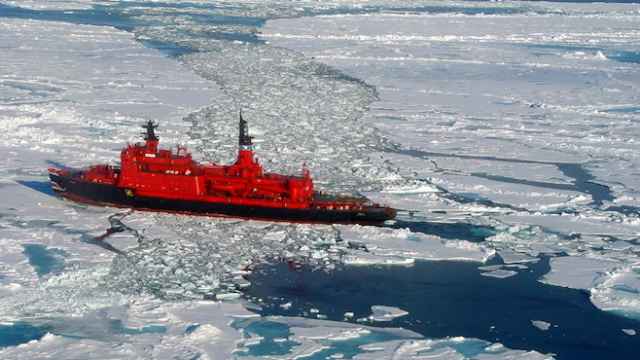Russian authorities are proceeding with two major construction projects in protected areas, despite potential consequences including UNESCO sanctions and deadly walrus stampedes.
State energy behemoth Gazprom inked a framework deal Sunday on the so-called western route to supply natural gas to China.
The planned pipeline, according to Gazprom's website, is to pass through the Golden Mountains of Altai, a UNESCO World Heritage Site.
The area is home to a wealth of archeological evidence of Siberian nomads, as well as a population of the endangered snow leopard.
The Altai project has been in the works for years, but was mothballed in 2013 after UNESCO threatened to strike the site off the World Heritage list.
The plan was revived in September as part of Russia's attempts to seal a geopolitical and economic alliance with China to offset a crisis in relations with the West over Ukraine.
Gazprom's press service, which said in September that it was too early to comment on the issue, had no one available to speak about the issue Monday.
The Kremlin also stayed silent, despite the fact that President Vladimir Putin, who has a soft spot for apex predators, personally oversees the snow leopard conservation effort.
"Once developed, such natural sites never recover," Greenpeace Russia program director Ivan Blokov told The Moscow Times in an interview last week.
Elsewhere, the Defense Ministry issued conflicting statements on the ongoing construction of a military base on the far-eastern Wrangel Island, another UNESCO World Heritage Site.
A statement attributed to the ministry, published on ForestForum.ru in late October, claimed no construction was under way on the polar island, where human activity is prohibited by Russian and international legislation.
The ministry's official website, meanwhile, offers a slew of reports about the new base, meant to add military muscle to Russia's claim to vast swathes of the allegedly petroleum-rich Arctic Ocean.
The ministry did not return a request for comment from The Moscow Times in the seven days required by law. There was no answer at any of the five phone numbers listed by its press service on Monday.
Environmental officials have claimed the construction on Wrangel Island is no hazard to the site, which is nicknamed a "polar bear nursery" and also hosts Russia's biggest walrus rookery.
But the director of the Wrangel nature reserve, Alexander Gruzdev, said last month that local wildlife was already leaving certain areas of the island because of humans, army news website DefendingRussia.ru reported.
Even limited human presence can be dangerous to polar animals: In the 1990s, a single airplane flying over a Wrangel beach spooked the walruses, prompting a stampede, according to Greenpeace Russia. Between 100 and 300 pinnipeds perished, crushed under other members of the herd.
UNESCO has so far kept silent on the issue and did not return repeated requests for comment.
Only two countries have so far seen their sites struck off the World Heritage list: In 2007, an antelope conservation effort in the Middle Eastern country of Oman was declared failed, and in 2005 residents of the German city of Dresden voted to build a new bridge across the Elbe River, improving the city's transport infrastructure but losing the historical landscape's place on the list in 2009 as a result of the changed appearance.
Contact the author at [email protected]
A Message from The Moscow Times:
Dear readers,
We are facing unprecedented challenges. Russia's Prosecutor General's Office has designated The Moscow Times as an "undesirable" organization, criminalizing our work and putting our staff at risk of prosecution. This follows our earlier unjust labeling as a "foreign agent."
These actions are direct attempts to silence independent journalism in Russia. The authorities claim our work "discredits the decisions of the Russian leadership." We see things differently: we strive to provide accurate, unbiased reporting on Russia.
We, the journalists of The Moscow Times, refuse to be silenced. But to continue our work, we need your help.
Your support, no matter how small, makes a world of difference. If you can, please support us monthly starting from just $2. It's quick to set up, and every contribution makes a significant impact.
By supporting The Moscow Times, you're defending open, independent journalism in the face of repression. Thank you for standing with us.
Remind me later.







